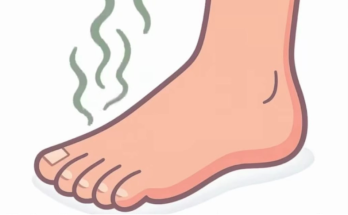For many people, slipping on a soft pair of socks before bed feels like a cozy nighttime ritual. Beyond comfort, this habit may also influence how quickly you fall asleep and how restful your night becomes. Others, however, find socks uncomfortable or unsuitable for their situation.
Potential Benefits
Wearing socks to bed can help you fall asleep more easily by gently warming the feet. Warm feet encourage blood vessels to widen, a process that signals the body it’s time to rest. This steady warmth also helps keep your body temperature stable, reducing nighttime wake-ups and promoting a deeper, more refreshing sleep. People who often have cold toes or mild circulation issues may find this especially comforting during cooler seasons.
Another benefit is for the skin on your feet. Applying a gentle moisturizer before bed and then putting on breathable socks can help lock in moisture overnight, reducing dryness and cracked heels. For some, the regulated temperature even eases hot flashes or nighttime restlessness, creating a calmer environment for sleep.
Who Should Be Careful
Although bedtime socks are generally harmless for most adults, there are cases where they may be uncomfortable or inappropriate. People with circulation concerns should avoid tight socks because they can reduce blood flow, and those managing conditions such as neuropathy may not feel when socks cause pressure. People who tend to overheat or sweat at night may also find that extra warmth leads to discomfort or disrupted sleep. Warming your feet with a bath before bed is a good alternative.
Those prone to fungal issues should be mindful, as warm, moist environments can encourage fungal growth. Wearing clean, breathable socks made from cotton or moisture-wicking fabrics and keeping feet dry can help reduce this risk. For infants and small children, loose socks may be a safety hazard in cribs, and toddlers may overheat. Footed pajamas or sleep sacks are a safer alternative for babies. People with sensitive skin or allergies can experience irritation from certain synthetic fibers, so choosing organic cotton or hypoallergenic socks helps minimize reactions. And medical-grade compression garments should not be worn overnight unless prescribed by a doctor; regular loose-fit socks are a better option for simple warmth.
The Takeaway
Sleeping in socks is a simple comfort that can support better sleep for some people, but it is not suitable for everyone. By choosing the right type of sock, paying attention to your body’s response, and consulting a healthcare provider if you have a medical condition, you can decide whether this nighttime habit works for you.




